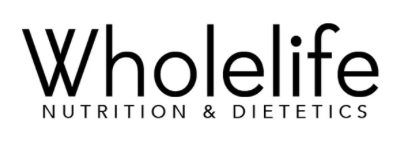The First 1000 Days
Did you know what you eat in the 3 months before you fall pregnant, through pregnancy, breast feeding and what you feed your baby in the first 2 years of life can influence the genetic programming of your baby for the rest of its life? [mic drop]
That's right, you have the opportunity to give your baby the headstart it needs, before it's even conceived! That is, reduce the risk of type 2 diabetes, heart disease, obesity, asthma & allergies. This is called the first 1000 days of life or Early Life Nutrition (ELN).
When we have babies, genes come from the female (egg) and from the male (sperm). Genetic programming refers to whether those genes are switched on (activated) or not.
Research shows environmental factors are one of the biggest determinants as to whether these genes are switched on or not.
These include
- Diet (from both females & males-it takes 2 to tango! [hint zinc & selenium are key nutrients here])
- Obesity
- Smoking
- Environmental pollutants (gases, water, air & plastics)
Nutrition being one of the easiest modifiable risk factors (1).
Other factors such as diabetes & heart disease can also impact egg & sperm quality so making sure these are managed prior to falling pregnant are important to give your future baby a head start in life!
WHY DOES WEIGHT MATTER?
There's strong research to support the following are more common in women who are obese than women of a healthy BMI (2):
- Gestation diabetes (GDM)
- Pre-eclampsia
- Depression
- Difficulties falling pregnancy
- Gestation hypertension
- Caesarian section
- Heavier bleeding postpartum
- Surgical site infections
Based on this, it's important for women who fall into the obese category to lose weight before falling pregnant & gain the recommend weight during pregnancy.
Additionally, once bub is born, there's an increased risk of developing diabetes, high blood pressure & obesity.
On the other hand, making sure you gain enough weight during pregnancy can prevent preterm delivery (3).
I highly recommend working with the guidance of a dietitian who is trained in fertility & pregnancy nutrition to maximise your nutritional status during this time to make sure this is done safely so you and your baby will have a safe and healthy pregnancy.
If you would like support, book your preconception appointment here. I also offer a prenatal supplement plan consultation to make sure you're meeting all your nutritional needs for your pregnancy.
References
Norman RJ. 2015 RANZCOG Arthur Wilson Memorial Oration 'From little things, big things grow: The importance of periconception medicine'. Aust N Z J Obstet Gynaecol. 2015 Dec;55(6):535-40. doi: 10.1111/ajo.12400. Epub 2015 Aug 19. PMID: 26286686.
Marchi J, Berg M, Dencker A, Olander EK, Begley C. Risks associated with obesity in pregnancy, for the mother and baby: a systematic review of reviews. Obes Rev. 2015 Aug;16(8):621-38. doi: 10.1111/obr.12288. Epub 2015 May 28. PMID: 26016557.
Dietz PM, Callaghan WM, Cogswell ME, Morrow B, Ferre C, Schieve LA. Combined effects of pre-pregnancy body mass index and weight gain during pregnancy on the risk of preterm delivery Epidemiology. 2006 Mar;17(2):170-7. doi: 10.1097/01.ede.0000198470.26932.9a. PMID: 16477257.


